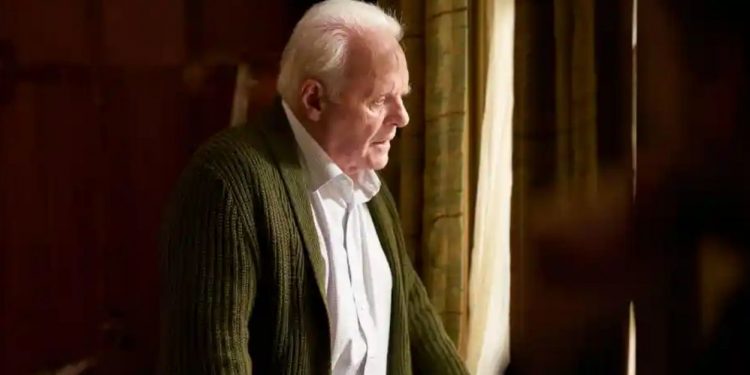Anthony Hopkins puts on the performance of a lifetime in The Father, a film about the unknown terrors of dementia that many of us grapple with understanding.
One of the reasons why dementia is so deeply terrifying is because all we can do is watch as it plays out; with pity, with anger, with patience, with sadness, with love. That is, until it happens to us, if ever.
Dementia is always also something that shapes our perceptions with plenty of evidence that plays out anecdotally. Florian Zeller’s The Father is a film that lets us view life through the eyes of a man afflicted with dementia, and its message is powerfully paralysing.
If ever you were afraid that your family members or you would get lost in the fog of dementia, then this movie is the stuff of nightmares. I got nice and cozy to watch The Father on a lazy Sunday afternoon. I had entered with no expectations. And I was anything but ready for what this film slapped me with, and for the astounding performance of Sir Anthony Hopkins, who carries the movie with flawless expertise.
The script of this play-turned-film was, after all, adapted with him in mind. The Father takes audiences through a slice of dementia, with much of the film being the establishment and unveiling of life as the elderly protagonist knows it, and then does not know at all. In his confusion, there are many lovely micro-moments of life that he revisits.
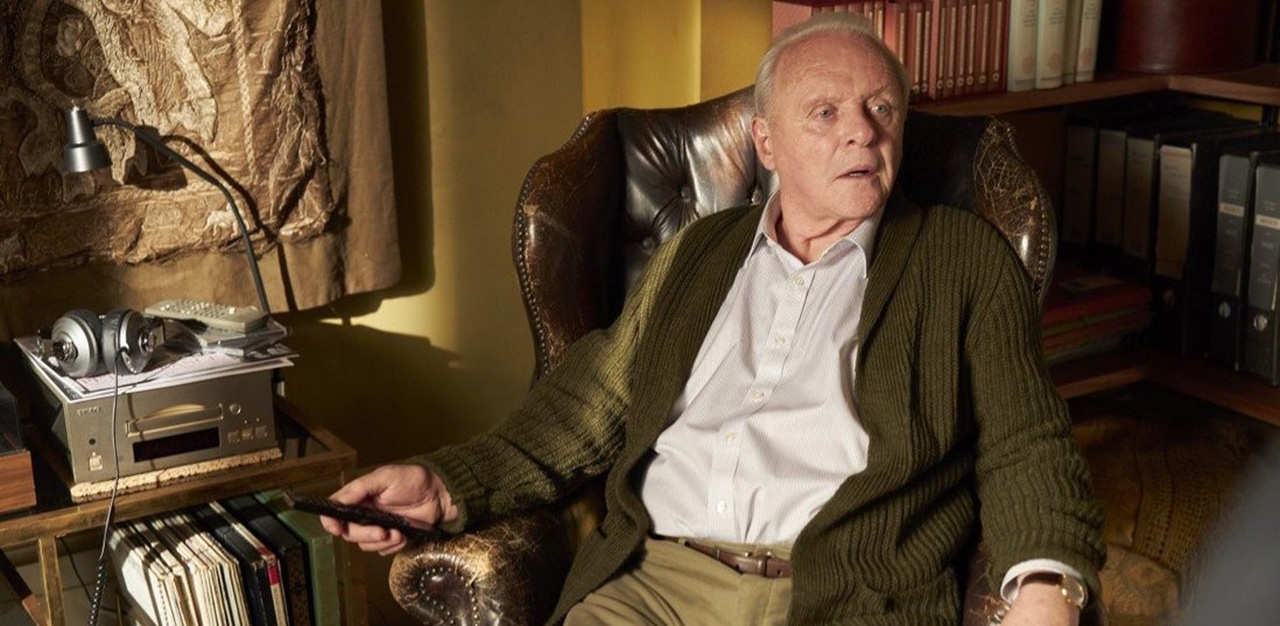
Merely a matter of time before unpleasant situations taint the merry
In doing so, The Father brings awareness to the sad reality of much of the turmoil that elderly dementia patients may deal with, including physical abuse. It is all the more saddening as a tabula rasa appears to disappear, making patients incapable of saying a word.
The plot features Anthony Hopkins as his character Anthony in the small setting of his mind. Anthony is poise, witty, and charming, but even the sharpest of minds cannot be spared from debilitating dementia. As we get to know Anthony, we watch as he loses his sense of self. In the film, and in Anthony’s mind, are also his daughter Anne played by Olivia Colman, and her ex-husband Paul (Rufus Sewell).
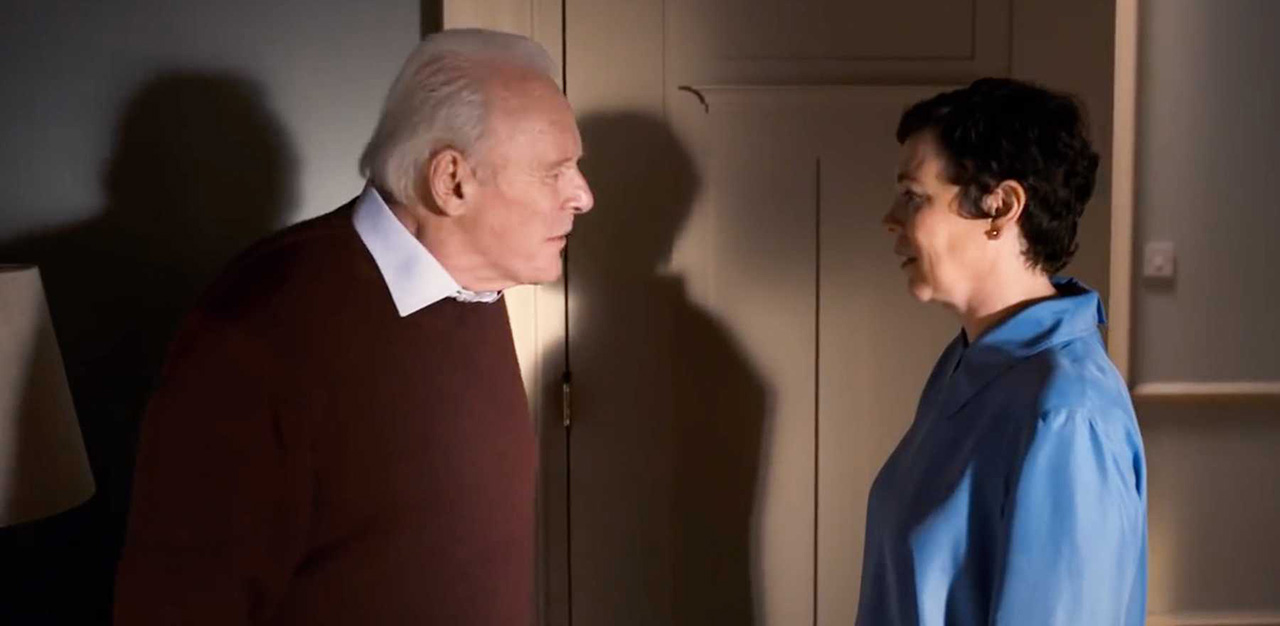
One of Anthony’s other daughters Laura (Imogen Poots), is deeply missed by him, as he constantly ponders why she never comes around anymore. Reality is different, as Anthony recalls later in the film, and it is left to viewers to wonder if part of Anthony’s lack of memory when it comes to Laura is in part to erase a sad memory.
Dementia bends reality
The film does an exceptional job at creating a seamlessly perplexing state to ‘reality’ as we see through the eyes of Anthony. Dementia is a reality-bending illness, and as Anthony’s realities make it seem as though he has being transported through various points in a timeline, we begin to understand what exactly it means when it is said that dementia patients are living in various points of their past.
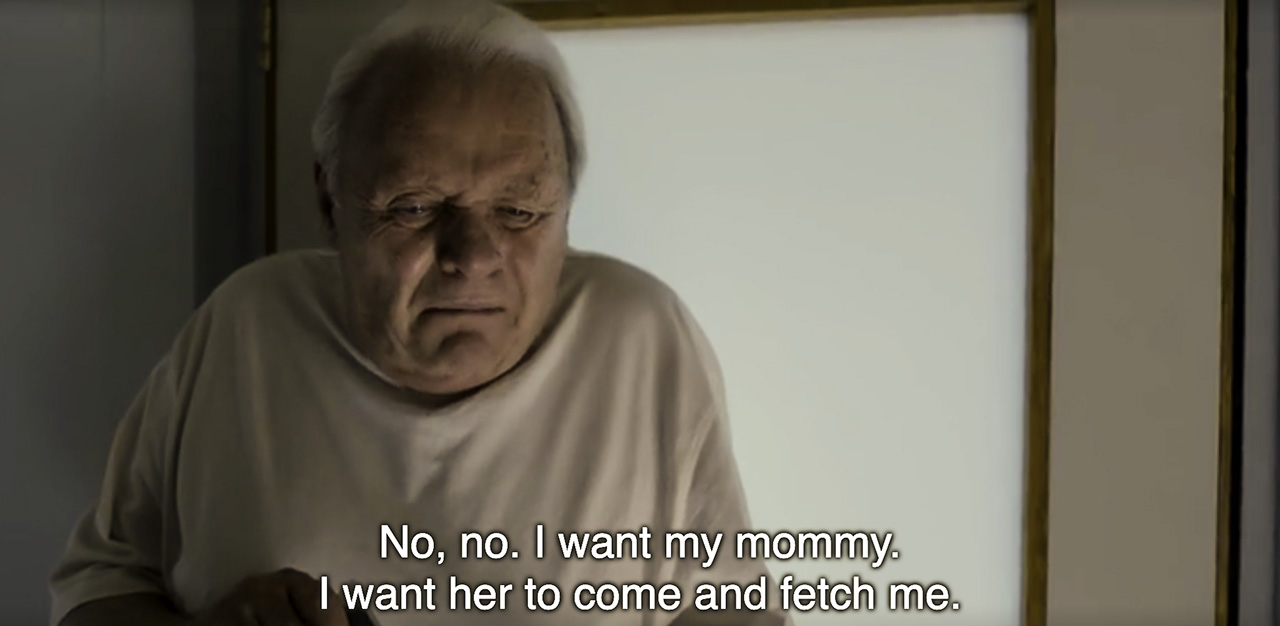
The marvellous execution of this film is also largely owed to Zeller’s directorial ingenuity. The novelist, playwright, and director brings the nuances of set and sequence from his play to its film adaptation. When the play version of The Father played in London’s West End, it won several awards. And adapted in such a manner for screen, carried by a stellar cast, the film version is fully deserving of its six nominations at the 93rd Academy Awards, four nominations at the 78th Golden Globe Awards, and six nominations at the 74th British Academy Film Awards.
Lurking in the background but rearing its beautiful, intense head is Ludovico Einaudi’s composition for the film. The score breathes some fresh air into the Einaudi’s usual works, which tend to hold consistently reminiscent melody lines that make the music very recognisably his. The Father shows a side to Einaudi that’s more on edge, accompanying the film with silence and comfort where it needs it, and plummeting slowly into unhinged despair when Anthony’s mind wavers.
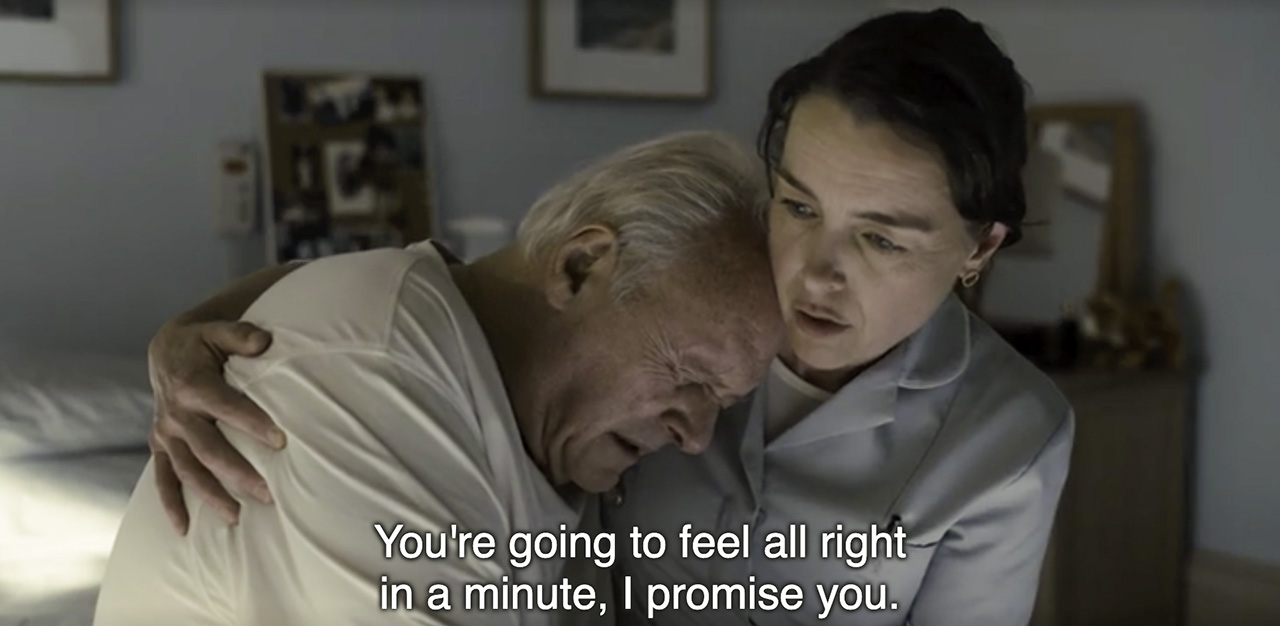
Watch The Father even if you don’t like films like The Father
The Father is sad, quiet, and on superficial appearance, slow. But it sits far ahead of many award-nominated films that force relatability with indulgence. This film is about something that is close to all of us, and about an illness that we still grapple with to understand. It is an important watch for how effectively it puts things in perspective, a reminder to be patient, and a reminder to look at geriatric caretakers with the highest honour and pride.



